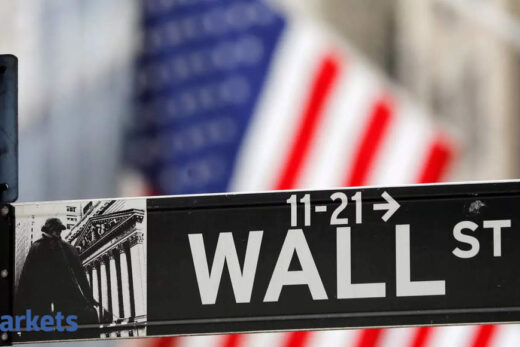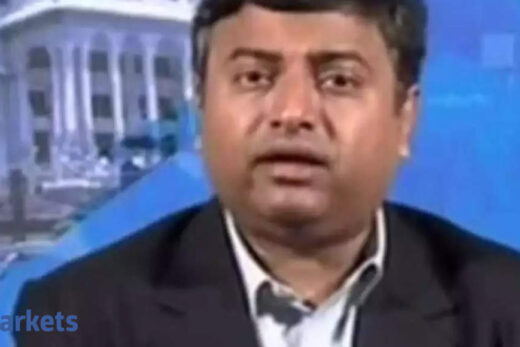Is Xi Jinping going from capitalism back to Maoism? How can India seize the moment, at least in the manufacturing front?.
India can try. India has a problem because of its political constraints. It is not a low wage country. It is not a cheap infrastructure country. It is not a country with cheap land. If people have to come here, what is the advantage for India? The biggest advantage is the size of our domestic market.
And because of the size of the domestic market, once somebody comes and sets up a large scale manufacturing at marginal cost, one can export goods. This was originally China’s advantage and it is also India’s advantage. But India has its own disadvantages.
In real terms, the garments manufacturing has gone to Bangladesh. It is not coming to India and it will not come to India. Some of the cheap electronics may come because on the mobile side and on the component side, the Indian market is so large that when the people come in taking advantage of the PLI scheme, one will produce for the Indian market and the small surplus can be exported. So this is the kind of money that will come into India. We are not going to become an export-oriented power house the way China is or the way Vietnam is right now.
The real problem is that until this year, exports were more or less stagnant since 2013. Forget about becoming a world power, Bangladesh has a higher GDP. If you do not have dynamics, strong exports, double digit growth, you cannot sustain 7% GDP growth. The stagnation of exports from 2013 onwards foretold that this is not sustainable. If you cannot do something about this, your GDP will fall and the GDP will begin to fall. It went from 8% to 7%, 6% and 4% just before Covid. It has got reversed now.
This year exports at last are growing in double digits and with that there is some hope of GDP coming up. I think the RBI has done its bit by saying earlier on that the rupee will appreciate and has now moved in to stop the rupee from appreciating and in the bargain, foreign exchange reserve have more or less doubled.
Let us not kid ourselves that we are going to be saved by foreign investment. If we get foreign investment of $60 billion, that is fine but the domestic investment will be more than 10 times as much. So ultimately, the bulk of our investment is going to be domestic. There will be a useful contribution by foreign investment which will include links to foreign technology and foreign markets. Ultimately there is a lot we have to do by ourselves to make ourselves cost competitive
Why is China doing what it is doing?
There are two or three different angles to it. The question is where does China go from now? On the economic side, it seems Xi Jinping sees the need to get away from the current trend where there has been too much concentration of wealth in a few hands, too much chasing after money and too much ignoring the social aspect which the Communist Party of China should be stressing on. I think he is trying to assert himself over the party that they have gone too far down the road of Deng Xiaoping to be rich. One needs to be rich but one also needs to look after things.
More than that, there is a very clear feeling of unease that the Chinese Communist Party will lose control if a large number of ultra rich guys like Jack Ma come up and become a force on their own. They will then pose a threat. In political and financial terms, even in the realm of ideas, they do not want to lose this particular ground. So this is a combination of the two; so on the one hand, there is crackdown on people who are prominent and open their mouths easily like Jack Ma and the clear message is if you want to be rich it is possible, but first you must make noises about how you are sharing your prosperity; secondly, you should shut up and stop trying to give lectures to the Communist Party on how to run things and how to go into the future.
Jack Ma has complained that Communist Party does not know how to handle fintech where there are new ways of getting loans directly to small people without collateral. I think there are a number of dangers in Jack Ma’s approach.
In economic terms, many people will say that China was in some ways a highly unregulated economy in some critical sectors and tightening of those regulations would have been required in any western countries in similar circumstances. So, that is non-ideological and that is a technocratic thing which needed to be done and that will be over and above these political issues.
On the political side, of course China has to deal with the new Biden administration. But it is not Cold War II. In Cold War I, Russia had a separate economic system. They did not seek to be members of the World Bank, IMF; they did not focus on international trade. Instead they focussed on internal trade and on self sufficiency.
China is very much part of the global system. Both Xi Jinping and Biden acknowledge that. They have important trade and investment relations. Political issue are going to put a number of limits on the extent of cooperation. China and America and the rest of the world will continue mutual trade and mutual investment and to that extent, it will not be like the Cold War.
The Americans need China more than ever before as it is the factory of the world. The Chinese have managed to do incredible things in terms of mass manufacturing and innovation. What happens if the factory of the world starts slowing down?
As long as China was doing cheap labour stuff, America did not bother. The big alert has come as China has suddenly become a major power with hi-tech units. Suddenly China was ahead of America and also producing it at a cheap rate. China is ahead of America in battery storage and some electrical issues. Not a single nuclear power plant has been set up in America. China on the other hand, has set up a string of them and is the most successful anywhere else in the world.
So China is no longer a country exporting cheap textiles or assembling cell phones and electronics. That was acceptable but as China has got into new strategic areas, the Americans are worried about intellectual property rights. But will there be barriers in general? I greatly doubt. There is a mutual need for one another. Cutting it off would be too dramatic. In any case, America is not in the mood to go and be the international police or the supposed leader of the free world armed with missiles as it was immediately after World War II.
The big difference between China and USSR is that the USSR ideologically believed in world compass and a stated aim. China has no ambition to convert the world into Communists. So while there are differences, in economic terms China is more powerful than the USSR ever was and because of its high population combined with high GDP growth. By some measures, it is already the number one economy in the world in terms of total size of north per capita levels.
China will undoubtedly continue to grow. I doubt if it will overtake the USA in per capita GDP. We need a multi-polar world. I think economic power will be diffused among a large number of countries as also political and military power. I am less gung-ho on the theory of the polarisation of the world. I do see some political and strategic barriers coming but that will be nothing compared to what we had in the past.



